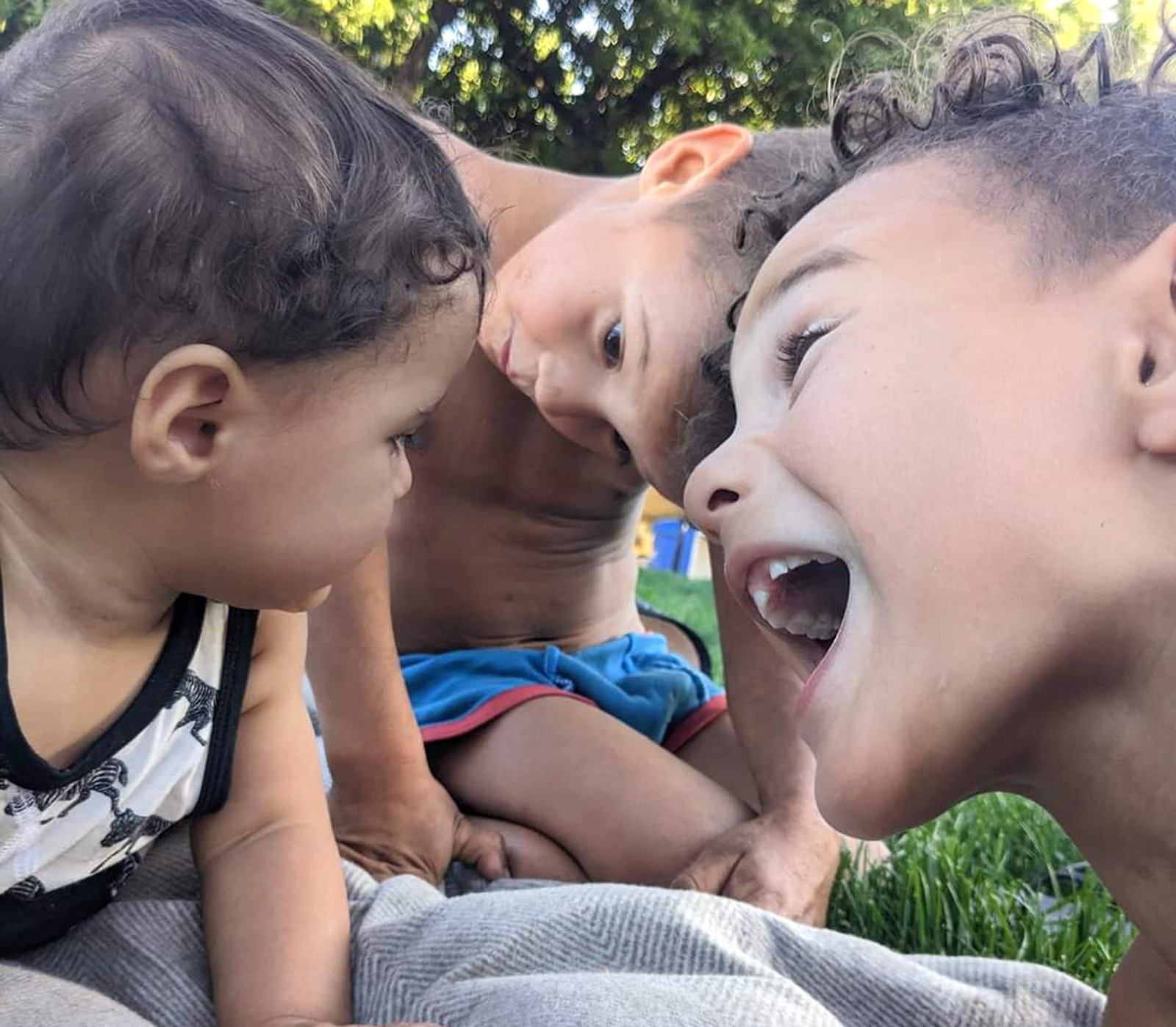Spotlight
Just Wait!
Published
2 years agoon

By Hannah Bemis
“The created world itself can hardly wait for what’s coming next. Everything in creation is being more or less held back. God reins it in until both creation and all the creatures are ready and can be released at the same moment into the glorious times ahead. Meanwhile, the joyful anticipation deepens” (Romans 8:19-21, MSG).
I have been feeling expectant for a while now. There has been a sense of anticipation, a thrill in the air that I cannot shake, though I do not know exactly what it is I am so looking forward to. I am not alone in this. My prayer group at church has been feeling it. My spiritual director and other Christian leaders I have spoken with are feeling it as well. I have even felt a shift in how I approach my workdays. Instead of dreading certain meetings or seemingly monotonous tasks on my to-do list, I have felt the Holy Spirit whispering, “But what if that meeting ends up being the best part of your day?” or “What if I’m about to use that task to change someone’s life?” I have had this renewed awareness that God can do anything and that each moment contains the potential for the supernatural.
We are seeing evidence of a new thing God is doing in places like Asbury and other pockets of revival across the country. There is new life in many of our churches, a new spark of passion in our worship, new creativity and courage in the ways we are serving the lost and vulnerable in our communities. But the anticipation I feel is more than the sum of any of these things. It is undefined, simply a deep conviction that we are on the cusp of something God has never done before. I am confident this feeling of anticipation is from God because it is not my norm to feel this way.
I am a fairly even-keeled, responsible person. I do not look forward to things as much as I prepare for them. I highly value diligence and accomplishment; I enjoy doing high quality work in an efficient manner (and with that last sentence, I just put every reader to sleep). Honestly, I have a love-hate relationship with my personality. I remember being young and having parents and teachers tell me over and over how responsible I was. Every time I heard it, my heart sank a little bit because their description of me was SO BORING, yet another part of me thrived on being thought of as responsible. It was who I was. It is who I am. You can trust me to do what needs to be done.
I have had to contend and make peace with this part of my personality again and again, particularly as I have raised my daughter Nora. Nora is ten, and her essence is the antithesis of my own. She prioritizes fun over responsibility . . . every time. She is a whirling mess of creativity and daydreams. If you tell her to do three things, she might do one. She is delightful and exasperating in equal measure, but you know what runs through her veins? Anticipation.
I wake up and ask, “What do we need to do today?” Nora wakes up and asks, “What do we get to do today?” She is always convinced there is something fun just around the corner. And if there isn’t, there should be. I realized a couple of years ago that her innocent question of anticipation was making me anxious. I would dread the moment she asked that question, afraid of disappointing her when there was nothing special on the agenda for the day. “Well, Nora, we have ahead of us another exciting day of dishes and errands!” I felt obligated to come up with something fun for Nora so I would have an acceptable answer to her question. My sense of responsibility was rearing up and as a result, I was taking her sense of joyful expectation and turning it into a burdensome expectation I needed to meet.
“It is so easy for our preparation to shift into an effort to control or manipulate what God is wanting to do. It is so easy for us to try to keep a handle on the Holy Spirit, as if we can contain in our hands the God who holds us in His own. Over-planning and over-thinking are not as productive as they seem, and they almost always steal the joy of anticipation.”
Today, I see the danger of the Church doing the same thing with the joyful anticipation the Lord is stirring up in this season. I recently received an invitation to a two-day conference at a local church that was entitled “Readying Ourselves for Revival.” The conference agenda described several sessions that reviewed and compared past revivals, pulling out the things they had in common, and compiling a list of ways Christian leaders can prepare their church for a similar revival. The conference seemed to be asking the question: What can we do to make this wonderful thing happen? I found myself asking questions in response: “Did the students at Asbury “make” the revival happen? Did they manipulate it in some way the rest of us did not see?
In our staff meetings at church, we have had conversations reflecting on revival, imagining what it might look like if it would happen in our church. We have asked questions like, “How will we steward a move of the Spirit? How will our worship team know they have permission to keep going rather than stop at the pre-planned time? How will our parents be released to get their kids, and how can we ensure that we don’t overburden our children’s ministry if people are caught up in worship that lasts for hours and hours?”
These are not bad questions! It is not bad to have a plan. Believe me, preparation is part of my DNA, and in certain seasons God calls His people to prepare, within measure. After all, He appointed a special prophet to “Prepare the way of the Lord” (Isaiah 40:3, NKJV). John the Baptist’s entire calling was preparation, and what an honorable calling that was.
If God calls us to prepare the way for revival, it will feel a lot more like “What do we get to do today?” than “What do we have to do today?” A readying sourced by the Holy Spirit will be joyful and expectant; it will not feel like a dreaded obligation or a joyless task list. It will feel something like the leaping in the womb that the pre-born preparer John experienced when he first sensed and anticipated the coming of his Lord. If we find ourselves antsy to prepare, we should continually check our hearts, asking ourselves what our motivation is. Is it to be good stewards, desiring to make space for God to move? Or is it to remain in control of the movement of God?
At a certain point, we must surrender and realize that this thing, whatever it is, is up to God. We have to be willing to say, as John did, “He must become greater; I must become less” (John 3:30, NIV). His plan must become elevated above our own. We can trust Him. He cares about the worship team and the kids and the parents, and He will resource and equip us for whatever it is that ends up happening.
It is so easy for our preparation to shift into an effort to control or manipulate what God is wanting to do. It is so easy for us to try to keep a handle on the Holy Spirit, as if we can contain in our hands the God who holds us in His own. Over-planning and over-thinking are not as productive as they seem, and they almost always steal the joy of anticipation.
Preparation, with the right heart and when we are called to do so, is an honorable thing. I think each of us is responsible to ask ourselves what God is calling us to do in this season. Is He calling us to prepare? Or has He called us to something different?
What I am sensing Him calling me to do is much less about preparation than I am comfortable with. It is the same simple command that Jesus gave His followers when He ascended to heaven in Acts 1:4 (NIV): Just wait. “Wait for the gift my Father promised, which you have heard me speak about . . . .”
In the time between that command and the coming of the Holy Spirit, we see that the disciples obeyed Christ’s command. They did not scurry around trying to make something happen or check items off a task list. They worshiped and they waited. That was all the preparation they needed.
There are certainly biblical moments of preparation, but there are also many biblical mandates to be still. In storms, in war, in times of anticipation, there is a consistent command to simply be still.
“Be still before the LORD and wait patiently for him” (Psalm 37:7, NIV).
Be still and anticipate – that is what I sense the Lord calling me to do. Anticipation is meant to be delicious. It is a gift all in itself. We can rest in that gift, enjoying this season of waiting expectantly and knowing that our hope will never be disappointed. The outcome is on God’s shoulders. If He gives us something specific to do in preparation for what He is about to do, then of course let’s obey Him. But let’s not put a burden on our shoulders that we were never meant to carry. Let’s be expectant without placing unnecessary expectations on ourselves, on others, or even on God. He is so much bigger than our impressive expectations, and I believe He’s about to do something we’ve never seen before.
Below are three questions for you to chew on as you reflect on this subject with the Lord:
1. What might God be about to do in your life? In your church? In your family?
2. What is the one thing you are dreading most, least looking forward to today or this week? What if God is about to use that thing, that meeting, that moment to shift the Kingdom or to change a life?
3. In this season, do you sense God primarily calling you to prepare or to be still and wait?
About the Author
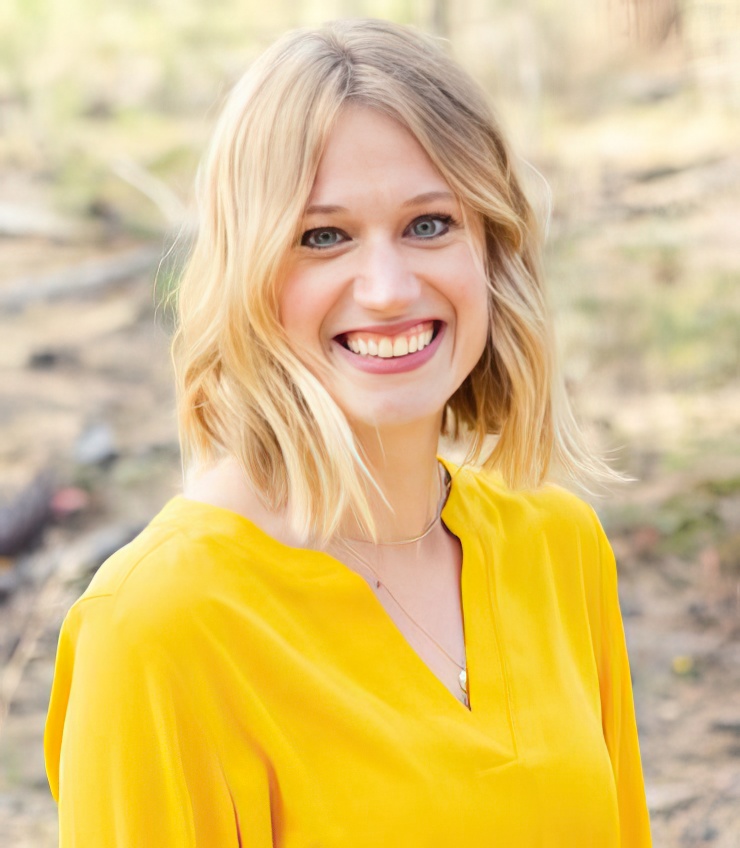
Hannah Bemis lives in Spokane, Washington, with her husband, Jordan, and their three kids. She graduated with a Christian Counseling degree from New Hope Christian College in Eugene, Oregon, and earned her Master of Arts in Teaching from George Fox University near Portland, Oregon. Hannah is a communicator, and has worked as a teacher, writer, speaker, and most recently as a pastor. She serves as the community pastor at Turning Point Open Bible Church in Spokane and on Open Bible’s Pacific Region Board of Directors. Hannah is passionate about Jesus, prayer, and helping people and the Church become who they were designed to be.

Spiritual direction…hmmm, sounds like what I get from the Holy Spirit when I pray, so why would I need to meet with a spiritual director when I can do this on my own? Seems unnecessary, right? Not to mention, I’m a guy; we never ask for directions.
That was my thinking a few years ago, until the day I got a call from another minister who was training to be a spiritual director. She needed to log a certain number of practice hours to finish her training, and she asked if I would be her “guinea pig.”
The call had “coincidentally” come in the middle of a challenging season; my pastoral duties felt relentless, and I was going through a profound life change. I felt empty inside as I wrestled with a nagging question: “Am I really hearing God clearly?” Unable to talk through my struggle with very many people, I had been feeling spiritually stuck. The person calling was someone I trusted, so I agreed to be a part of her training process. I thought I was helping her out, but little did I know this decision would stand as a cornerstone of my spiritual and mental health moving forward.
Spiritual direction is like having a wonderful (dare I say, sacred) friend who walks alongside you and gently guides you to notice and respond to the presence of God in your life.
Spiritual direction is like having a wonderful (dare I say, sacred) friend who walks alongside you and gently guides you to notice and respond to the presence of God in your life. Believe it or not, even the best of us can miss Him in the middle of our emotional and mental upheavals. Unlike traditional counseling or mentorship, spiritual direction focuses on deepening our relationship with God, helping us become more aware of His presence in our everyday experiences.
A Transformative Encounter: Experiencing the Father Three Ways
There’s one spiritual direction session that particularly stands out in my mind. My mom had just passed away, and my dad was in the final stages of his life. It had been a tough year of loss, and I was doing my best to keep it together. As I shared with my spiritual director, she made a suggestion. She said, “Gary, take the next ten minutes to sit before the Father and ask Him what He wants to say to you in this season.”
I muted the microphone, sat in silence, and stared out the window of my office into my backyard. It was a beautiful day, and the wind was rustling through the trees. Things moving by some unseen force. As I sat there, God reminded me of three snapshots (memories) with my dad. The first was a memory of being at the beach with him when I was four and his taking me into the deep water. I remember protesting that I didn’t want to go out there but also feeling safe because I was held tightly in my father’s arms. The second was a memory of when I was twenty and we took a trip together. It was on that trip that I felt my father, through his actions, take his mantle of authority and leadership and place it on my shoulders. The third snapshot wasn’t a true memory but a glimpse into the future. I was about to visit my dad in a month – it was to say goodbye as he was in the final stages of life on earth. My agenda was simple: I was just going to spend time with Dad.
In those pictures, with the wind blowing through the trees, the Father used my father to help me encounter Him. I’ll never forget the three things God whispered to me as I pondered those three snapshots:
Gary, I’m with you; you’re safe.
Gary, I’ve given you everything you need to fulfill what I’ve called you to do; I trust you.
Gary, all I desire is for you to spend time with me and enjoy my presence.
Those past and future joys were a reminder from my heavenly Father that I could take the path ahead because He was with me. I’m not sure I would have had such a profound experience had it not been for the preceding conversation with my spiritual director and our subsequent debrief.
Integrating Spiritual Direction into Pastoral Ministry
Moments in this and following sessions have been a game changer for me, helping me become a better leader and follower. I now approach decisions with a greater sense of grounding, choosing to rely on prayerful discernment and feedback from someone who’s spiritually mature and not emotionally tied to the situations. I’ve also learned to listen better, not just to God but also to people.
Spiritual direction has been a transformative experience for me, helping me grow both personally and professionally.
Spiritual direction has also been a huge help with my mental health. Regular sessions provide a sanctuary from the incessant demands of ministry and allow me to process those stressors in a safe context. I’ve learned to be more resilient, thanks to the reflective exploration of my spiritual journey, and I feel more balanced and purposeful.
If you’re a minister who hasn’t tried spiritual direction yet, I highly recommend it. Here are a few things to keep in mind:
- Find a spiritual director who’s trained to help others on their spiritual journey.
- Make sure you prioritize regular meetings. Consistent engagement allows for a deeper unfolding of your spiritual narrative and allows for sustained growth.
- Be open and vulnerable. Don’t be afraid to talk about the good and bad parts of your spiritual life.
Spiritual direction has been a transformative experience for me, helping me grow both personally and professionally. Remember, we all need help sometimes.
About the Author

Gary Kahn
Gary Khan was born on the island of Trinidad in the Caribbean. He moved to America when he was twenty to pursue his education and calling to be a pastor. He met his wife DeLaine at Eugene Bible College (now New Hope Christian College) and upon their graduation, they were married and began working at Desert Streams Church in Santa Clarita, CA. After thirty-two years as a pastor, Gary became an Executive Director of Operations for Marketplace Chaplains. He is the author of devotionals including Reset and Greater and his most recent book, That Didn’t Turn Out the Way I Thought.

On the fifth day of creation, our wonderful God showed himself in a brand new way. He began to create the living creatures that walk among us. This expression of His creation has shown itself throughout history; from Noah’s dove, to Balaam’s donkey, to Jonah’s whale and Daniel’s lions, God has continued to use animals in His grand plan and purpose.
We can still use these animals as a metaphor for God’s love and guidance. One notable example comes from Bob Sjogren’s book Cat and Dog Theology: “A dog says, ‘You pet me, you feed me, you shelter me, you love me, you must be God.’ A cat says, ‘You pet me, you feed me, you shelter me, you love me, I must be God.’”
As true as this may be, something wonderful happens when the molds break.
[God] certainly doesn’t want to drag us from one destination to the next. He would rather we follow Him willingly, eager to remain in His presence.
In our family, we recently experienced an interesting phenomenon when it came to our pets. To understand the story better, you need to understand our animals. Ralphie is our young, spirited Maltipoo. He has never met a stranger he didn’t love. He is sweet, loyal and in many ways the ideal companion.
Then we have our chihuahua, Sally. We found Sally roaming our neighborhood in 2014 with no tags and no microchip. She had obviously been mistreated, and when I took her to the vet, they found so many things wrong with her that I was advised, “Don’t be in a huge hurry to find her owner.”
We cleaned Sally up, and two weeks later she was legally ours. While she is affectionate to us and our kids, to this day, if I lift my hand to give her a pat on the head, she winces as if I am going to hit her (something I have never done and never intend to do).
Ralphie and Sally’s unique natures show themselves on our nightly walk around the neighborhood.
Ralphie tries his hardest to pull on the leash and run ahead. He so desperately wants to lead whoever is holding the leash that he nearly chokes himself on his collar. (We’ve had to switch to a harness.) He is unaware that he is only eight pounds, and his actions make little to no difference in the direction we are going.
Sally, however, must be practically dragged throughout the walk. She is timid and afraid to take a step that she isn’t sure is safe.
It’s quite a sight to have such different dogs reacting to the same thing.
Witnessing this phenomenon gave me pause, and I couldn’t help but think what a picture this is for the diverse ways we respond to the Holy Spirit’s leading in our lives.
So many people are like Ralphie. They try to tell God where they want to go without any regard to His guidance. They would rather choke themselves on their own will than listen to what He has to say. Others are like Sally and struggle to fully trust the Lord. For them to move, the Holy Spirit must practically drag them to the next place.
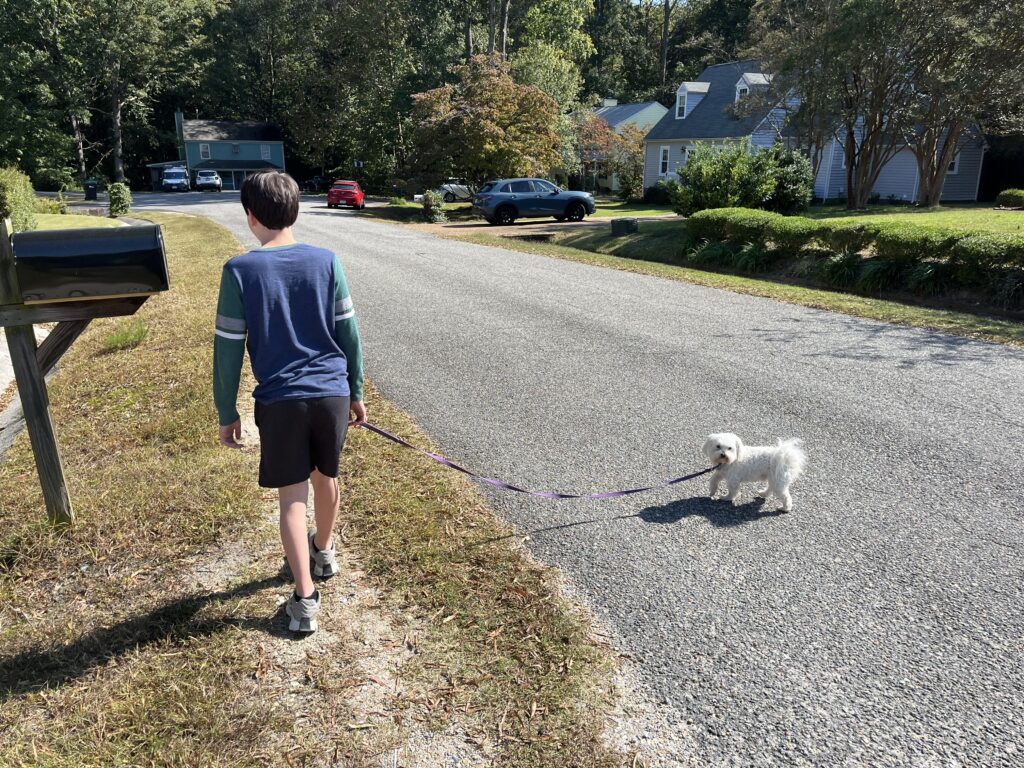
It sounds like a simple premise, but so many followers of God fall into these two opposite extremes. People miss their destinies when they act like Ralphie and Sally.
But there is another pet in our household whom I have not told you about. His name is Caesar, and he is an old, wise cat. We got Caesar the year we were married, and he lived up to his noble name every chance he got. Years ago, on our nightly walks with the dogs, Caesar began doing something amazing.
By his own free will, he would simply follow us on our walks. No need for a leash. No need for us to coax him. He just followed our gentle guidance every night for the mere purpose of being with us. Every now and then we would have to call his name, but he was always nearby.
I believe that in a world full of Ralphies and Sallys, God would rather we be like Caesar. The Lord doesn’t want us to tell Him where we are going rather than let Him lead, and He certainly doesn’t want to drag us from one destination to the next. He would rather we follow Him willingly, eager to remain in His presence.
In Matthew 8:18-22, two men express a desire to follow Jesus. The first is overly eager, not knowing what he is getting himself into. Jesus gives him a stern warning, explaining that he doesn’t know what he’s asking. The second man hesitates and says he needs to bury his father first. We never learn the fate of either man, but I hope they both abandoned their natural tendencies and learned to faithfully follow.
Whether you struggle with being too aggressive on your journey with God or whether you’re entirely too scared to take another step, I believe we can all grow in learning to be led
After sixteen years of being our cat, Caesar died peacefully this past March, but not before we had gotten a kitten named CJ. CJ is full of life and extremely playful. She was always so intrigued by our old friend Caesar that she started following him everywhere he went, even if it meant a walk around our neighborhood.
Caesar indirectly made a disciple with our young kitten, who now follows us on our walks every night. Despite how aggressive Ralphie wants to be or how timid Sally is, we now have CJ, just following along wherever we go.
Whether you struggle with being too aggressive on your journey with God or whether you’re entirely too scared to take another step, I believe we can all grow in learning to be led. If we will stay close to Jesus, we cannot help but fulfill His destiny for our lives.
About the Author
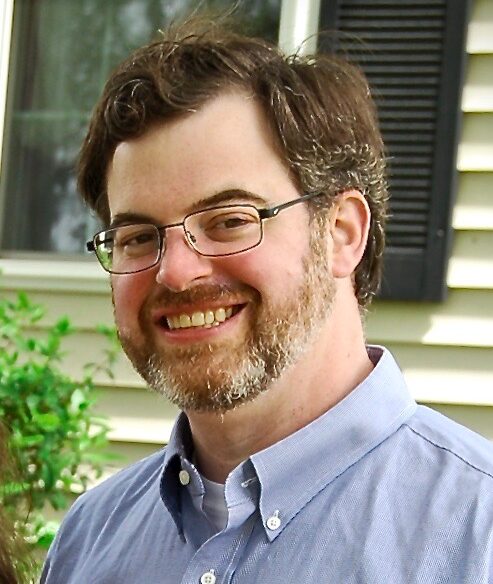
Bill Francavilla
Bill Francavilla is the lead pastor at Living Hope, an Open Bible church in Williamsburg, Virginia. Having lived in Virginia nearly his entire life, he attended Lynchburg College, where he studied history and theater. In 2017 Bill received his master’s degree in theological studies from Liberty University. He has been active in missions to Mexico, Dominican Republic, and Cuba. He and his wife, Jessica, have four children: Alex, Liam, Rita Grace, and Gino.

I am Shane Blackledge, and my wife Amber and I are the founding pastors of Cultivate Church in St. Louis, Missouri. My story is one of transformation and God’s grace, showing how He can use anyone to build His kingdom.
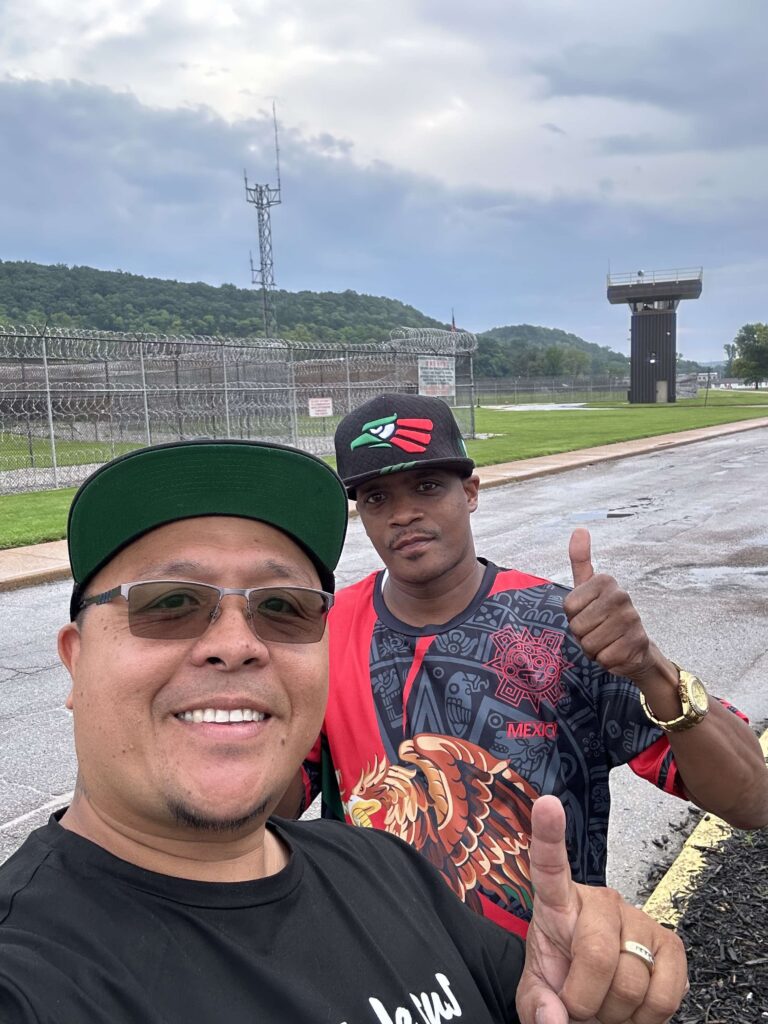
I was born in Colorado at the Air Force Academy Hospital. My father served in the Vietnam War, and while stationed in Taiwan, he met my mother and they got married. When I was six, my parents separated, and my mother moved back to Taiwan, leaving me devastated. As a kid, I faced racism and extreme poverty. I battled depression, anxiety, and thoughts of suicide. I started smoking and drinking at eight years old, joined a gang at age thirteen, and was using meth daily by the time I was fourteen.
At age seventeen, I was arrested and sentenced to thirty years in prison for selling drugs. I found myself in my jail cell wanting to end it all. On my night stand I found a Gideon Bible, and I opened it right to John 3:16. As I sat there reading, I realized I was a sinner, but that God created me and I had a purpose to live. I repented and asked Jesus to forgive me. I felt the Father’s love and the presence of the Holy Spirit in an indescribable way.
After my release, I struggled transitioning back into society (finding a job, paying rent, and finding a church that would accept me). I was discouraged and soon relapsed on meth. During the years of my addiction, I was sent to five prisons and was incarcerated for over six years. In 2006, after nearly dying from an overdose, I woke up from a coma and realized God had saved me from death. That day I fully surrendered to Christ, and that’s when my real transformation began.
In 2006, after nearly dying from an overdose, I woke up from a coma and realized God had saved me from death
God restored what addiction had taken from me. I have now been clean from meth for seventeen years. In 2013, I married Amber. We started attending Waverly Life Church, served as youth leaders, and eventually started a Celebrate Recovery program. In 2022, God called us to plant Cultivate Church in St. Louis, Missouri. We resigned from all ministries and jobs and sold our home. In April of 2023, we started house church gatherings which quickly grew in Christ and numbers. We launched our first Sunday gathering in October of 2023.
Today, we are a church without walls, modeled after the early church in Acts. We have regular church gatherings geared towards discipleship, street ministry, addiction recovery, Christian hip-hop events, prison ministry, and nursing home visits. We work with local treatment centers and recovery programs to support and mentor people. We have partnered with churches and ministries to organize monthly inner-city mission trips.
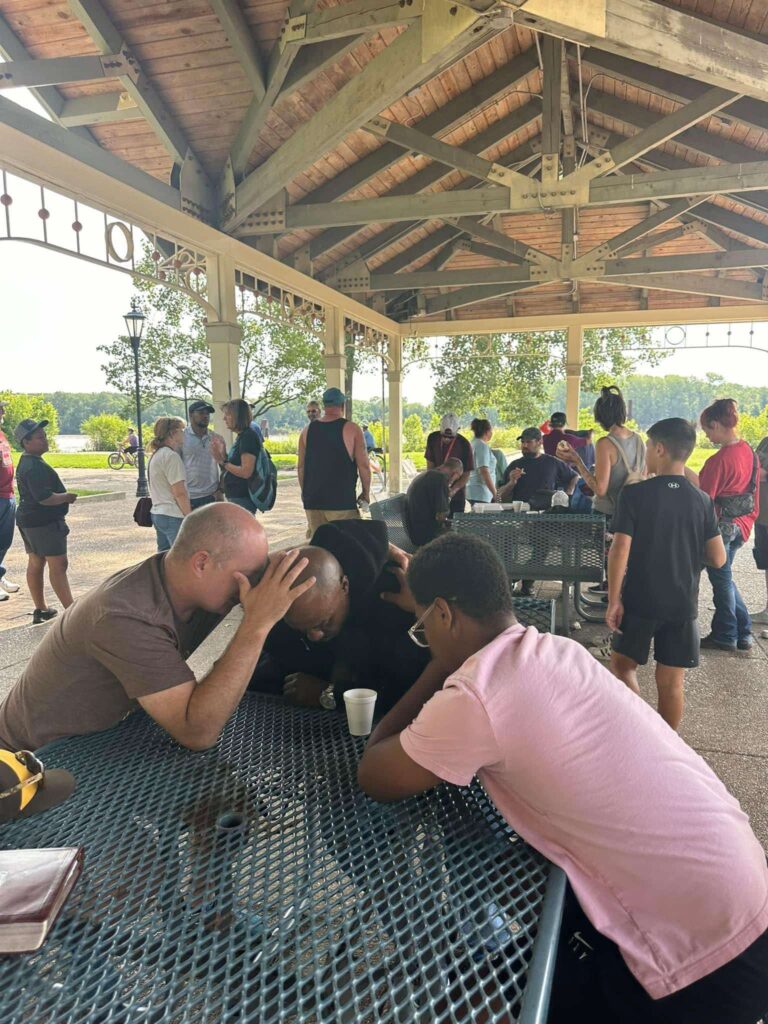
One way God has used my story is with my podcast: “Kingdom Minded,” which streams into 1000 prisons across the country on over one million inmate tablets. In partnership with the Edovo learning app, the podcast focuses on sharing testimonies and teaching Biblical principles.
Looking back, I am amazed at what God has done. In just a year our church has grown from a small group in our living room to a thriving community, passionate about sharing God’s love. Amber and I are excited about the future. We believe God is just getting started with Cultivate Church.
He can use anyone, even a former addict and convict like me, to build His kingdom.
My story and the story of Cultivate Church are really about God’s faithfulness. He can use anyone, even a former addict and convict like me, to build His kingdom. All the glory goes to Him.
To donate toward our prison ministry and homeless outreach, visit wearecultivatechurch.org or check out our Blessing Bags Gift Registry at HERE.
About the Author
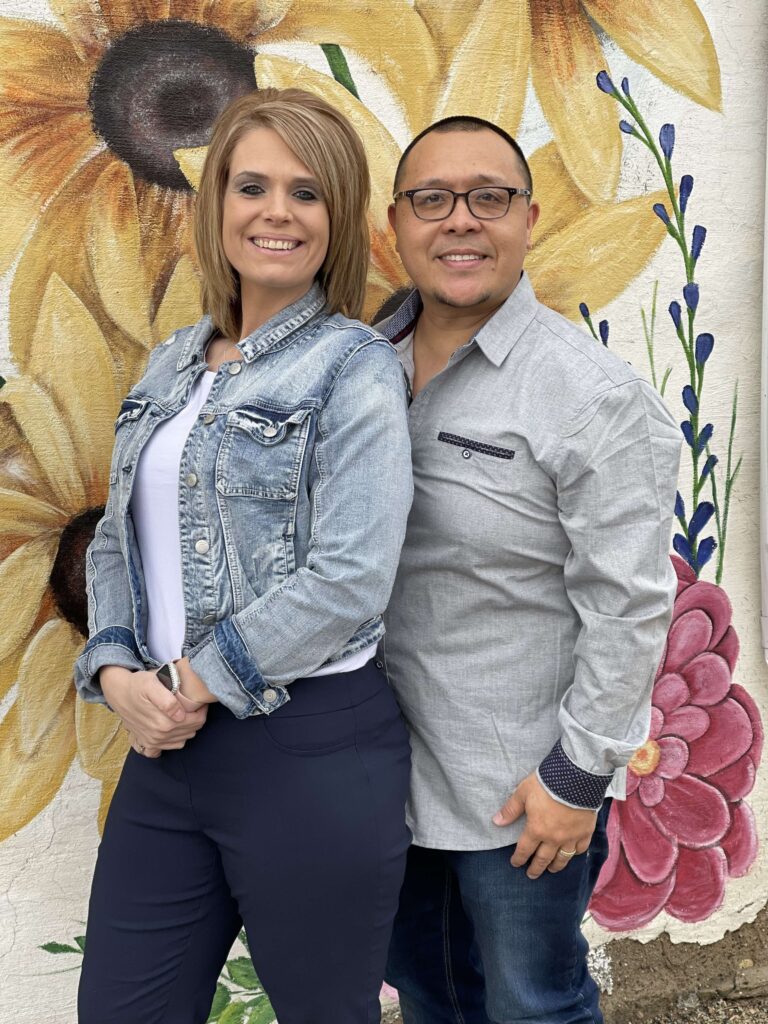
Shane R. Blackledge
Shane R. Blackledge is the co-founder and senior pastor of Cultivate Church. He and his wife Amber started Cultivate Church in their home in 2023. Today, the church is known for spreading the Gospel and being the church without walls. Shane’s podcast, “Kingdom Minded,” is available in over 1000 prisons on inmate tablets on the Edovo Learning App. Through testimonies and Bible principles, the podcast aims to teach, inspire, and equip Christians to live their best life now. Shane is an author and speaker, and his books From Prison to Purpose and Overcoming Codependency are available on Amazon. Shane and Amber have four children and live in St. Louis, Missouri.




